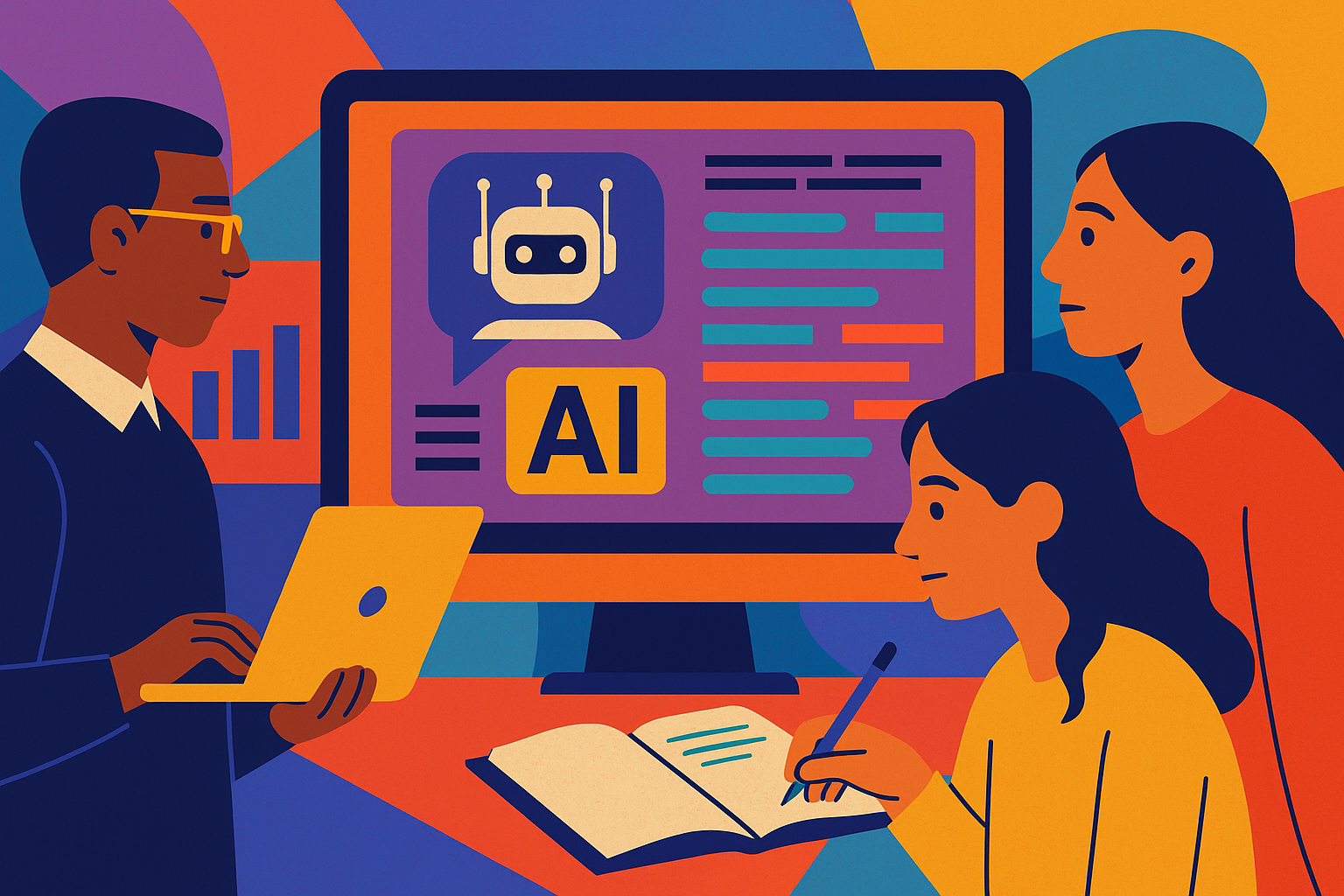Turnitin study finds students more concerned than educators about AI’s impact on learning
Survey of 3,500 global respondents highlights key challenges in AI adoption across secondary and higher education
Global EdTech company Turnitin has released new research showing that students are more worried about the use of artificial intelligence in education than educators or academic administrators.
The findings come from a survey of 3,500 students, educators, and administrators across the United States, United Kingdom, Ireland, Australia, New Zealand, Mexico, and India.
The study, conducted in partnership with independent research firm Vanson Bourne, forms the basis of Turnitin’s new report Crossroads: Navigating the Intersection of AI and Academia, which outlines the current state of AI use in both secondary and higher education settings.
Widespread AI use, limited understanding
According to the research, 64 percent of students report being concerned about the use of AI in education, compared to 50 percent of educators and 41 percent of administrators. While 78 percent of all respondents feel positive about AI’s impact, 95 percent believe it is being misused in some way at their institution.
A majority of students say they use AI tools occasionally for assignments, yet 67 percent feel this may be shortcutting their learning. Half of the students surveyed also say they do not know how to get the most benefit from AI tools. In comparison, 47 percent of educators and academic administrators say they want to leverage AI for better decision-making but lack the knowledge to do so.
Institutional readiness lags behind expectations
Despite the expectation from employers that graduates be AI-ready, the report suggests that many institutions are underprepared. Only 28 percent of institutions have fully integrated AI into their strategies, and 37 percent of educators report a lack of institutional resources to support AI use.
Concerns about AI’s impact on critical thinking are widespread. Fifty-nine percent of students fear that overreliance on AI could reduce these skills. Plagiarism, misinformation, and a general lack of training on AI tools were also flagged as key risks by all stakeholder groups.
Regional differences and alignment on risk
While the overall sentiment toward AI is positive, responses vary by region. Just 65 percent of UK and Ireland respondents feel optimistic about AI in education, compared to 93 percent in India and 85 percent in Mexico. However, concerns such as misinformation and reduced innovation are consistent across countries and between secondary and higher education.
A significant portion of respondents, 86 percent, believe it is their institution’s responsibility to educate students on how to use AI ethically. Students also report a lack of involvement in shaping institutional policies, with only 33 percent saying they had a say in how AI is governed at their school or university.
Clear need for guidance
Turnitin, which works with over 16,000 institutions in 185 countries to promote academic integrity, says that developing strong guidance and policies is critical to navigating the evolving AI landscape.
Annie Chechitelli, chief product officer at Turnitin, says: “The risk of intentional misuse will always exist with generative AI. Transparency throughout the student writing process enables educators to leverage the opportunities that AI technologies present, while upholding the integrity of original student work. Navigating a clear path forward means equipping educators with solutions to integrate AI in ways that preserve critical thinking skills, and prepare students for the demands of an AI-driven future.”





















